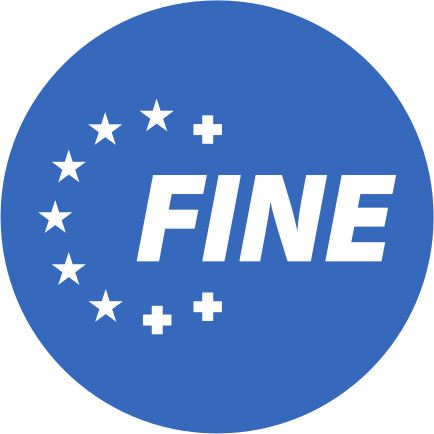




Mission
FINE is an international, non-governmental, non-profit organization dedicated to promoting excellence in nursing education and the continuous development of nursing educators’ skills across Europe and globally.
FINE’s mission is to empower nurse educators to shape the future of healthcare, address population health needs, and advance global well-being through innovative, evidence-based education, sustainable practices, and collaborative leadership.
Values
Excellence in nursing education
FINE transforms nursing education by globally aligning curricula and empowering nurse educators to adopt modern teaching and learning methods. These methods, which include simulation, digital learning platforms, AI-driven education, and telenursing, are essential for adapting to the evolving healthcare landscape. FINE is committed to driving significant improvements in policy, workforce sustainability, and patient-centered care.
Shared governance and leadership
FINE empowers nurse educators by facilitating collaborative decision-making, fostering leadership development, and promoting active influence in policy. This approach cultivates a positive and inclusive culture, effectively driving sustainable advancements in nursing education.
Openness
FINE advocates for the alignment of nursing education with the European Qualifications Framework (EQF) and the Bologna Process. This alignment is essential for ensuring uniformity, mobility, and recognition of competencies throughout Europe. FINE demands active involvement from its members and emphasizes the necessity of autonomy in nursing training. Furthermore, FINE supports decisive policies that enhance career development, tackle faculty shortages, and significantly improve working conditions and professional advancement.
Ethics and integrity
FINE strongly advocates for ethical decision-making, intellectual integrity, and transparent communication, ensuring that all actions are aligned with the highest standards of professional conduct. Nursing curricula must include cultural competency, equity, digital ethics, and sustainability to effectively prepare nurses and nursing educators for diverse environments while prioritizing patient rights and dignity.
Interprofessional collaboration
FINE promotes interprofessional education, encouraging nurses to collaborate decisively with other healthcare professionals for high-quality patient care. It champions strong nursing leadership in healthcare policy and demands the establishment of robust mentorship programs, comprehensive faculty development, and standardised training for nurse educators to elevate nursing education to the highest standards.
Research and innovation for evidence-based teaching and practice
FINE is a leader in advancing nursing education through rigorous research, the integration of evidence-based practice into curricula, and supporting doctoral programs to drive innovation in patient care, shaping policy, and transforming healthcare delivery.
Sustainability in nursing education and practice
FINE actively drives sustainable nursing through a commitment to lifelong learning and continuous competence development. We integrate climate-resilient healthcare and resource-efficient practices as core components of our mission. In alignment with the United Nations’ Sustainable Development Goals, we unequivocally promote equitable and sustainable healthcare and demand quality education to combat global health disparities whilst driving efforts to prevent avoidable harm to the environment.







